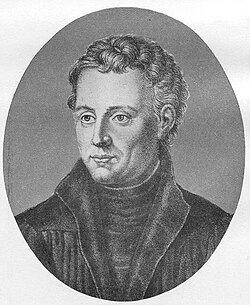
In philosophy, the terms obscurantism and obscurationism identify and describe the anti-intellectual practices of deliberately presenting information in an abstruse and imprecise manner that limits further inquiry and understanding of a subject.[1] The two historical and intellectual denotations of obscurantism are: (1) the deliberate restriction of knowledge — opposition to the dissemination of knowledge; and (2) deliberate obscurity — a recondite style of writing characterized by deliberate vagueness.[2][3]
In the 18th century, Enlightenment philosophers applied the term obscurantist to any enemy of intellectual enlightenment and the liberal diffusion of knowledge.[4] In the 19th century, in distinguishing the varieties of obscurantism found in metaphysics and theology, from the "more subtle" obscurantism of the critical philosophy of Immanuel Kant and of modern philosophical skepticism, Friedrich Nietzsche said that: "The essential element in the black art of obscurantism is not that it wants to darken individual understanding, but that it wants to blacken our picture of the world, and darken our idea of existence."[5][a]
- ^ Oxford English Dictionary (OED Online, 3rd ed.). Oxford University Press. 2004.
Opposition to inquiry, enlightenment, or reform ...
- ^ Webster's Third New International Dictionary, Unabridged. Merriam-Webster, Inc. 2018.
- ^ Webster's New Universal Unabridged Dictionary (1996) p. 1,337.
- ^ Buekens, Filip; Boudry, Maarten (2014). "The Dark Side of the Loon. Explaining the Temptations of Obscurantism". Theoria. 81 (2): 126–143. doi:10.1111/theo.12047. hdl:1854/LU-4374622.
The charge of obscurantism suggests a deliberate move on behalf of the speaker, who is accused of setting up a game of verbal smoke and mirrors to suggest depth and insight where none exists. The suspicion is, furthermore, that the obscurantist does not have anything meaningful to say and does not grasp the real intricacies of his subject matter, but nevertheless wants to keep up appearances, hoping that his reader will mistake it for profundity. (p. 126)
- ^ Nietzsche, F. (1878) Human, All Too Human Vol. II, Part 1, 27. Cambridge University Press; 2 edition (1996). ISBN 978-0-521-56704-6.
Cite error: There are <ref group=lower-alpha> tags or {{efn}} templates on this page, but the references will not show without a {{reflist|group=lower-alpha}} template or {{notelist}} template (see the help page).